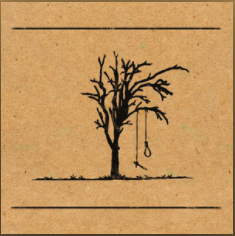
Should you put your best song first on an album? The Finest Hour falls on the affirmative side of the argument, as “Never Heard of Dylan” opens up These Are the Good Old Days on the highest of notes. “Never Heard of Dylan” bears more than a passing resemblance to the energetic rock of The Vaccines, as the scruffy British quartet offers up infectious melodies and great guitar/bass interactions. They make the most of what they’ve got, which shows in later tunes like the slightly calmer “Reasons to Complain” and the fist-pumping “See for Miles,” which has serious Green Day vibes. They do incorporate some fun ska elements, but they work best when they’re sticking to four-on-the-floor rock/pop. And although “Never Heard of Dylan” is tops, it only barely edges the 14-minute (!) finale “Indigo Night,” which includes a shout-it-out use of the album title in its excellent songwriting. If you’re looking for a fun album, you should be all over The Finest Hour’s These Are the Good Old Days–cause they are.
—

Michael Glader’s When On High is a fascinating amalgam, mixing ’60s psychedelic pop, rock, modern pop, and folk without succumbing to the excesses of any genre. This creates a uniquely idiosyncratic stew that keeps its own counsel. Opener “Strawberry Eyes” is a distortion-drenched, bass-driven stoner groove that features Glader modifying his keening tenor voice. Highlight “Big Spoon Little Spoon” is a solo guitar love song with the energy of a pop song, the fingerpicking of a folk tune, and the groove of a blues song. “Chasing Footsteps in the Sand” is a rhythm-and-bass-heavy pop tune. “Is This My Afterlife?” has a distant, eerie New Orleans vibe to its doo-wop. In short, this album goes all over the place, but none of Glader’s moves feel significantly out of his control. Each tune retains a dreamy, hazy sort of mood, and that keeps the album together. I’m a big fan of his quieter stuff (“Big Spoon Little Spoon,” “That’s It”), but there’s plenty for anyone to love in When On High. [Editor’s note: Michael Glader is now known as Red Francis.]
—
 The Weeping Tree by The Knitted Cap Club is a very stately record. The acoustic songwriting is very structured, and the emotion delivered by the female vocalist is quite measured. I don’t mean this as a criticism; fans of Portishead treasure those same characteristics. But this does go against the grain of modern singer-songwriter/folk, establishing a very formal entry in a world of passionate confessionals. The tone of the album has much in common with slowcore artists like Songs:Ohia, Elephant Micah, and Red House Painters, but with fewer self-pitying vocal performances.
The Weeping Tree by The Knitted Cap Club is a very stately record. The acoustic songwriting is very structured, and the emotion delivered by the female vocalist is quite measured. I don’t mean this as a criticism; fans of Portishead treasure those same characteristics. But this does go against the grain of modern singer-songwriter/folk, establishing a very formal entry in a world of passionate confessionals. The tone of the album has much in common with slowcore artists like Songs:Ohia, Elephant Micah, and Red House Painters, but with fewer self-pitying vocal performances.
Instead, the sparse but effective arrangements, which often include other voices, carry the mood of the tunes. Standout opener “Crown of Roses” features a whole verse accompanied only by ghostly multitracked voices, while “Eight-Thirteen” incorporates distant recorded voices for a similar effect. Even though the vocal performances don’t telegraph hurt, the lyrics of the album often do (“Heart Exchange,” “The Weeping Tree”), which enhances the ghostly, somber feel of the album. If you’re looking for something different in your singer/songwriter listening habits, try out this one.